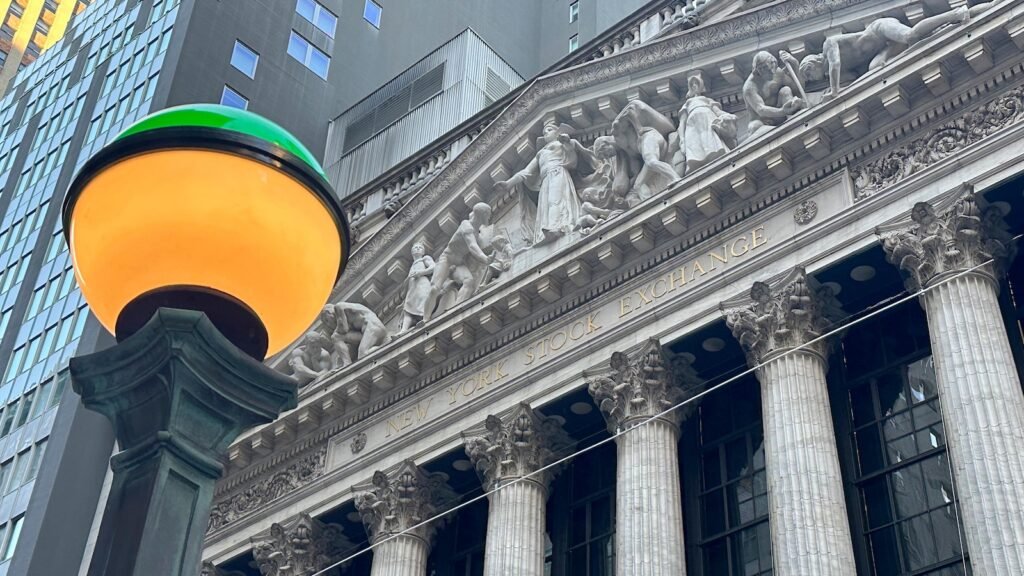NEW YORK — U.S. stocks are holding steadier Wednesday following better-than-expected profit reports from Morgan Stanley, United Airlines and other big companies.
The S&P 500 was 0.2% higher in morning trading, a day after sliding from its all-time high because of tumbling energy and technology stocks. The Dow Jones Industrial Average was up 165 points, or 0.4%, as of 10:30 a.m. Eastern time, and the Nasdaq composite was 0.1% higher.
Morgan Stanley rose 6.6% after reporting stronger profit for the latest quarter than analysts expected. CEO Ted Pick said the investment bank enjoyed a “constructive environment” in its businesses around the world. And with stock prices near records, it’s managing even more money for clients.
United Airlines flew 8.7% higher after reporting a milder drop in summer profit than expected and announcing plans to send up to $1.5 billion to its shareholders by buying back its stock. J.B. Hunt Transport Services motored up by 4% after the freight company delivered better-than-expected results.
They helped offset a 3% drop for Ulta Beauty. The retailer fell to one of the larger losses in the S&P 500 after giving long-term targets for growth in sales and other measures that analysts at Citi said suggested the U.S. beauty industry is more mature than it once was.
Energy stocks were holding steadier a day after sliding to some of the market’s worst losses, including a 0.6% rise for Exxon Mobil.
They were tracking oil prices, which themselves were stabilizing. The price for a barrel of Brent crude, the international standard, was roughly flat after falling below $75 per barrel from more than $80 last week.
One big reason for the recent weakness is receding fears that Israel will attack Iranian oil facilities as part of its retaliation for Iran’s missile attack early this month. Iran is a major producer of crude, and a strike could upend its exports to China and elsewhere. Worries are high, meanwhile, that China’s flagging economy will mean less demand than expected for crude.
U.S. technology stocks were also holding up better a day after a market-shaking warning from ASML, a Dutch supplier to the chip industry.
ASML CEO Christophe Fouquet said Tuesday that artificial intelligence continues to offer strong upside potential, but “other market segments are taking longer to recover.” That helped lead to slides of 3.5% for Broadcom and 4.7% for Nvidia on Tuesday. A day afterward, both were rising at least 1% and among the strongest forces pushing upward on the S&P 500.
Still, Wednesday offered the first chance for Asian stock markets to feel the ripples of ASML’s warning, and chip companies there tumbled.
Japan’s Nikkei 225 fell 1.8% as chip maker Tokyo Electron sank 9.2% and Lasertec Corp., which makes equipment to inspect chips, lost 13.4%.
Stock indexes were mixed across the rest of Asia and Europe. In London, the FTSE 100 rose 1.1% after the government reported inflation in the U.K. eased in September to its lowest level in more than three years. That reinforced expectations that the Bank of England will cut interest rates at its next policy meeting.
In the United States, the Federal Reserve has also already begun cutting interest rates following years of keeping them high in hopes of slowing the economy enough to stifle high inflation.
With inflation finally seeming to be heading toward the Fed’s 2% target, the central bank is widening its focus to include keeping the economy humming. Recent reports showing the U.S. economy remains stronger than expected have raised optimism that the Fed can pull off a perfect landing where it gets inflation down to 2% without causing a recession that many had thought would be necessary.
In the bond market, the yield on the 10-year Treasury fell to 4.00% from 4.03% late Tuesday. The two-year yield, which more closely tracks expectations for what the Fed will do, slipped to 3.93% from 3.95%.
___
AP Business Writers Matt Ott and Elaine Kurtenbach contributed.

